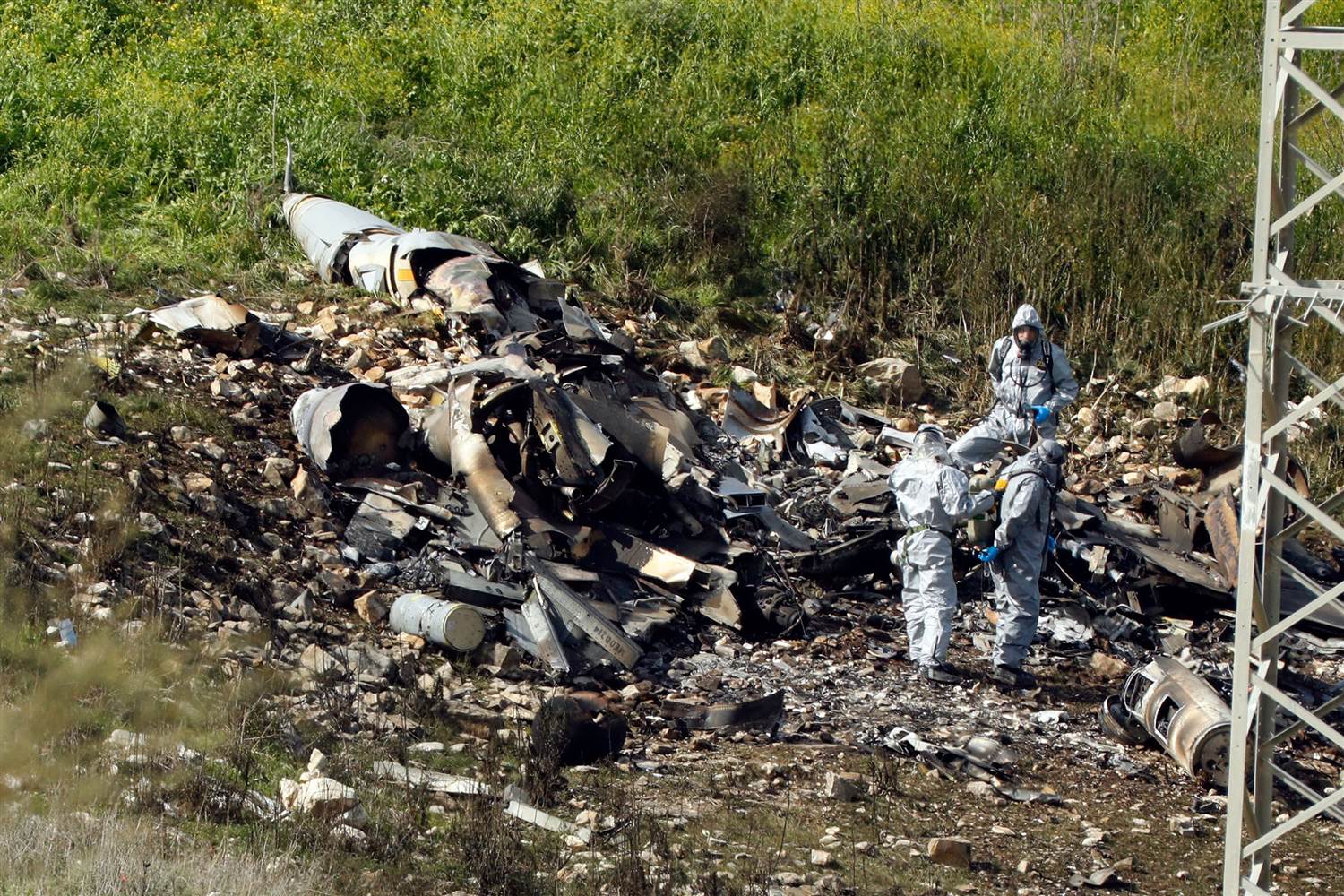On Saturday, when Israeli jets undertook yet another bombing raid this time an audacious attack on a drone base at the T4 airbase in Homs province deep inside Central Syria a nasty surprise awaited them. They were confronted by the Russian-made S-200 air defence system. One Israeli F-16 jet was shot down; a second jet was hit but managed to make it home; and, two pilots parachuted one heavily injured and in serious condition.
The last time an Israeli jet was shot down was in 1986 in Lebanon. The incident on Saturday is a humiliating experience for Israel. But, more importantly, it contains a stark message namely, that Israeli air attacks from now onward on Syria may come only at an unacceptable cost. The Secretary of Iran’s Supreme National Security Council Ali Shamkhani summed up the message to Israel this way: “There is an important point in the recent events and in targeting an Israeli fighter jet: the Syrian army showed to the Zionists that the era of hit-and-run has ended.”
In political terms, Tehran has justified the retaliation by the Syrian forces. The influential senior advisor on foreign policy to Iran’s supreme leader, Ali Akbar Velayati said today, “If the Zionist regime wants to make aggression against Syria or any other state’s airspace, the regional countries are entitled to use their space and the Syrian government and nation was entitled to respond to the Zionist regime’s aggression to make them regret.”
The same sentiments are echoed in the remark by the Deputy Secretary-General of Lebanon’s Hezbollah Resistance Movement Sheikh Naim Qassem lauded the Syrian army and said “Shooting down the Israeli fighter jet means that the era of unanswered attacks has ended.” He warned that henceforth, Israeli aggression will be met with counter-attacks.
The impression becomes unavoidable that the rules of engagement in the Syrian conflict have changed and Israel has been duly notified of the change. It is inconceivable that Syrian air defence system would have opened up without the knowledge of the Russian forces in Syria. Russia controls the Syrian air space. On the other hand, neither Moscow nor Tehran has hyped up the incident on Saturday. In effect, they are letting the message to Israel to sink in.
The reset of the rules of engagement has become inevitable now that Syrian government and its allied forces are registering more successes in the conflict. Israel has been so far acting with impunity, having conducted air attacks on Syrian territory more than a hundred times during the conflict. Interestingly, Israel can only expect verbal support from the US, since American presence is very thin on the ground in Syria and the Trump administration has its hands full at the moment what with the cascading tensions with Turkey that may lead to a nasty confrontation.
The pro-Israeli US media, which is heavily under the influence of the Jewish lobby, is conjuring up the spectre of a massive Israeli retaliation against Iran. But the fact of the matter is that the Israelis are hardcore realists. They’d have no difficulty to grasp the message that their plans to insert themselves into the Syrian endgame to extract concessions in terms of legitimizing their illegal occupation of Golan Heights as part of any settlement might as well be abandoned now.
Equally, the Israeli game plan to drive wedge between Russia and Iran is simply not working. It comes as no surprise that amidst all this, Russian Foreign Minister Sergey Lavrov has chosen to defend Iran’s ballistic missile program. The Russian news agency Sputnik quoted Lavrov as saying in an interview with Russian TV, “There are other countries in the (Middle East) region with such programs.
We must look at it as a whole. It is hardly justified to mix nuclear affairs with human rights and put the issue on the agenda that Iran should stop taking certain steps in the region… to my mind, a frankly discriminatory, biased and unjustifiably captious approach can be seen behind these US actions.” All in all, as the veteran Lebanese parliament speaker Nabih Berri says, “What happened (on Saturday) is larger than a battle and a little less than a war.
It will create new balances and rules of engagement in the region. This event is the first of its kind in tens of years. However, no escalation is expected. Things will end here; they will not develop into an all-out war.” If Berri says so, they must be words of wisdom. The shrewd politician after all has been holding the post of parliament speaker in Beirut continuously since 1992.


